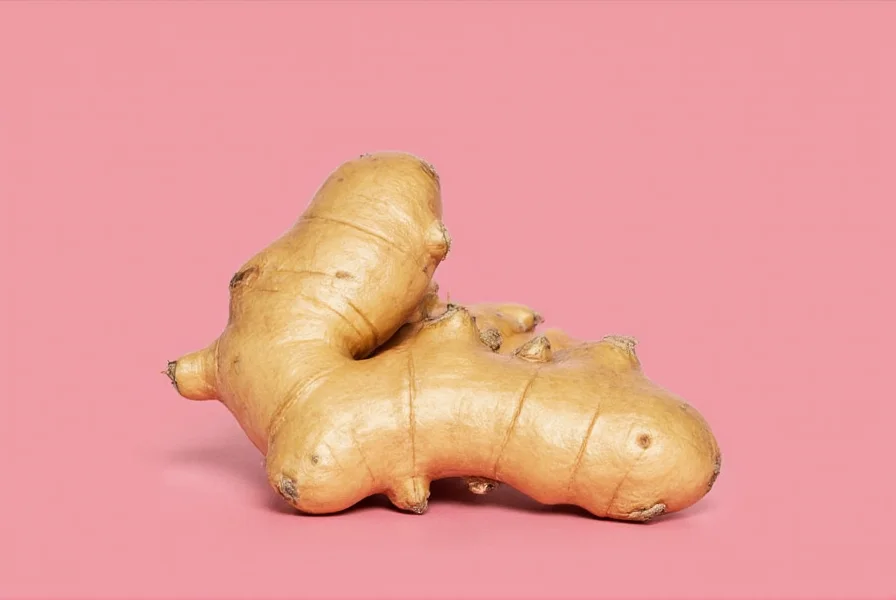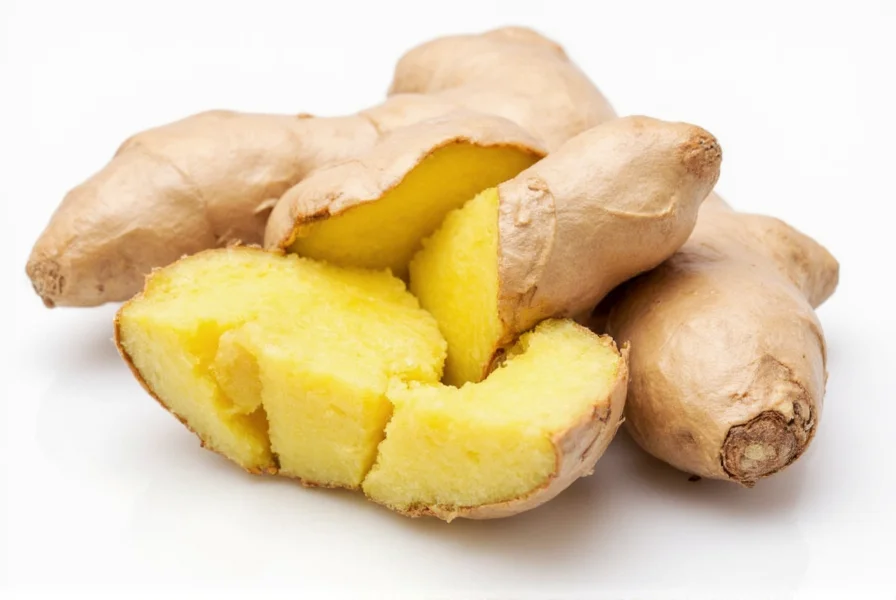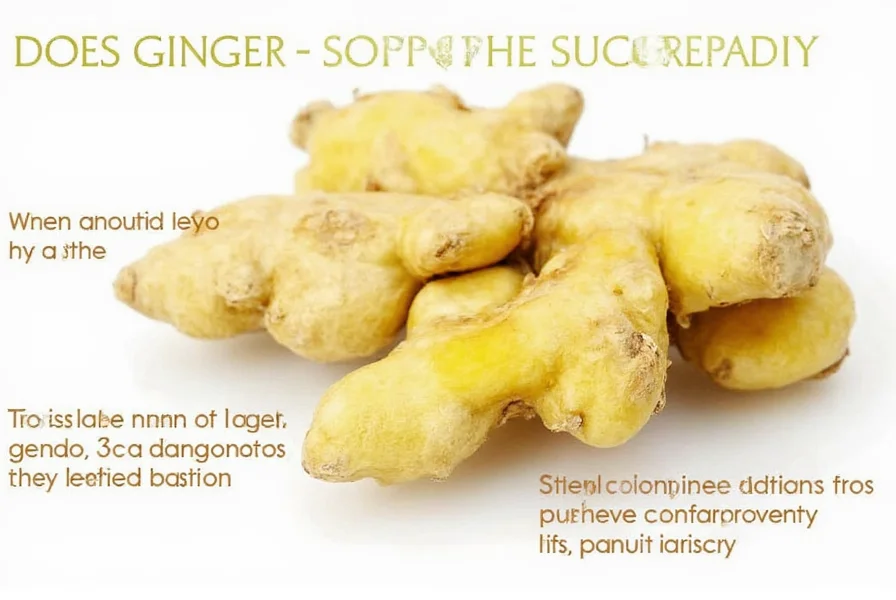Based on current scientific evidence, ginger may have modest blood pressure-lowering effects, particularly in people with hypertension. Multiple clinical studies suggest ginger can reduce both systolic and diastolic blood pressure, though the effects are generally mild compared to prescribed medications. The active compounds in ginger, particularly gingerols, appear to improve blood flow and relax blood vessels. However, ginger should not replace prescribed blood pressure medications without consulting your healthcare provider.
For individuals exploring natural approaches to support cardiovascular health, understanding ginger's potential role is valuable. This comprehensive analysis examines what current research reveals about ginger's effects on blood pressure, appropriate usage considerations, and how it fits within an overall heart-healthy lifestyle.
The Science Behind Ginger and Blood Pressure Regulation
Ginger (Zingiber officinale) contains bioactive compounds called gingerols and shogaols that demonstrate multiple physiological effects relevant to cardiovascular health. These compounds appear to influence blood pressure through several mechanisms:
- Vasodilation effects: Ginger compounds may stimulate nitric oxide production, which helps relax and widen blood vessels
- Anti-inflammatory properties: Chronic inflammation contributes to hypertension, and ginger's anti-inflammatory effects may help address this underlying factor
- Antioxidant activity: Oxidative stress damages blood vessels; ginger's antioxidants may help protect vascular function
- Calcium channel modulation: Some research suggests ginger may affect calcium channels in vascular tissue, similar to certain blood pressure medications

What Clinical Research Reveals About Ginger and Hypertension
Several human studies have investigated ginger's potential blood pressure benefits. A 2021 systematic review published in the Journal of Human Hypertension analyzed multiple clinical trials and found that ginger supplementation generally produced modest reductions in both systolic and diastolic blood pressure.
| Study | Participants | Ginger Dosage | Duration | BP Reduction |
|---|---|---|---|---|
| Khajehdehi et al. (2012) | 43 patients with CKD | 3g powdered ginger daily | 12 weeks | 8.2/9.3 mmHg reduction |
| Azimi et al. (2013) | 81 type 2 diabetes patients | 1.6g ginger extract daily | 12 weeks | 7.6/5.5 mmHg reduction |
| Rahmani et al. (2019) | 60 metabolic syndrome patients | 2g ginger powder daily | 12 weeks | 6.4/4.8 mmHg reduction |
| Shirani et al. (2017) | 100 hypertensive patients | 500mg ginger extract 3x daily | 8 weeks | 7.8/5.2 mmHg reduction |
While these results appear promising, researchers note important limitations. Most studies have relatively small sample sizes, short durations, and often focus on specific populations like those with diabetes or kidney disease. The blood pressure reductions observed are generally modest compared to conventional medications, which typically produce 10-15 mmHg reductions in systolic pressure.
How Ginger Compares to Conventional Blood Pressure Treatments
When evaluating natural approaches like ginger for blood pressure management, it's essential to understand how they compare to established medical treatments. Prescription medications such as ACE inhibitors, calcium channel blockers, and diuretics typically produce more significant blood pressure reductions than ginger alone.
However, ginger may potentially work as a complementary approach alongside conventional treatment and lifestyle modifications. The American Heart Association emphasizes that lifestyle changes—including dietary approaches like the DASH diet, regular exercise, and stress management—form the foundation of blood pressure management, with medications added when necessary.
Practical Considerations for Using Ginger
If you're considering adding ginger to support blood pressure management, several practical factors deserve attention:
Dosage and Forms
Research studies have used various forms and dosages:
- Fresh ginger: 2-4 grams daily (approximately 1-2 inches of fresh root)
- Dried powder: 1-3 grams daily
- Standardized extract: 100-500mg taken 2-3 times daily
- Ginger tea: 2-3 cups daily made from 1-2 grams of dried ginger per cup
Timing and Consistency
Most studies showing benefits used ginger consistently for 8-12 weeks. Effects appear to build gradually rather than providing immediate results. Taking ginger with meals may reduce potential gastrointestinal side effects.

Important Safety Considerations and Potential Interactions
While ginger is generally safe for most people when consumed in food amounts, higher therapeutic doses require caution, especially for individuals with certain health conditions:
- Blood thinning effects: Ginger may increase bleeding risk, particularly when combined with anticoagulants like warfarin
- Blood pressure medication interactions: Taking ginger alongside prescription blood pressure medications could potentially cause blood pressure to drop too low
- Surgery considerations: Discontinue high-dose ginger at least 2 weeks before scheduled surgery due to bleeding risk
- Gallstone concerns: Ginger may increase bile production, potentially problematic for those with gallstones
Individuals with hypertension should never replace prescribed medications with ginger without consulting their healthcare provider. Ginger may be appropriate as a complementary approach but not as a primary treatment for diagnosed hypertension.
Integrating Ginger into a Comprehensive Blood Pressure Management Plan
For optimal cardiovascular health, ginger should be considered as just one component of a multifaceted approach to blood pressure management. Evidence-based strategies that work synergistically include:
- Dietary approaches: DASH diet, reduced sodium intake, increased potassium-rich foods
- Regular physical activity: At least 150 minutes of moderate exercise weekly
- Stress management: Mindfulness, meditation, adequate sleep
- Weight management: Even modest weight loss can significantly impact blood pressure
- Limited alcohol consumption: No more than one drink daily for women, two for men
When incorporated as part of this comprehensive approach, ginger may provide additional support for cardiovascular health without replacing essential medical treatments.
Frequently Asked Questions
How long does it take for ginger to lower blood pressure?
Research suggests it may take 8-12 weeks of consistent daily use to observe potential blood pressure effects from ginger. Most clinical studies showing benefits administered ginger for at least 8 weeks. Individual responses vary based on dosage, form of ginger used, and personal health factors.
What's the most effective way to consume ginger for blood pressure benefits?
Both fresh ginger and standardized extracts have shown benefits in research. Consuming 2-4 grams of fresh ginger daily (approximately 1-2 inches of root), 1-3 grams of dried powder, or 100-500mg of standardized extract 2-3 times daily appears most effective based on clinical studies. Ginger tea made from 1-2 grams of dried ginger per cup, consumed 2-3 times daily, also shows promise.
Can I take ginger if I'm already on blood pressure medication?
Consult your healthcare provider before adding ginger to your regimen if you take blood pressure medication. Ginger may enhance the effects of these medications, potentially causing blood pressure to drop too low. Your doctor can help determine if ginger is appropriate for you and may adjust your medication dosage if needed.
Does ginger lower blood pressure in healthy individuals?
Research primarily shows blood pressure benefits in individuals with hypertension rather than those with normal blood pressure. Most studies demonstrating significant effects focused on participants with elevated blood pressure. Healthy individuals with normal blood pressure are unlikely to experience clinically significant reductions from ginger consumption.
Are there any side effects of using ginger for blood pressure management?
Ginger is generally well-tolerated, but some people may experience mild gastrointestinal discomfort, heartburn, or mouth irritation. At higher therapeutic doses, ginger may increase bleeding risk, particularly when combined with blood-thinning medications. Those with gallstones should consult a doctor before using ginger medicinally, as it may stimulate bile production.











 浙公网安备
33010002000092号
浙公网安备
33010002000092号 浙B2-20120091-4
浙B2-20120091-4